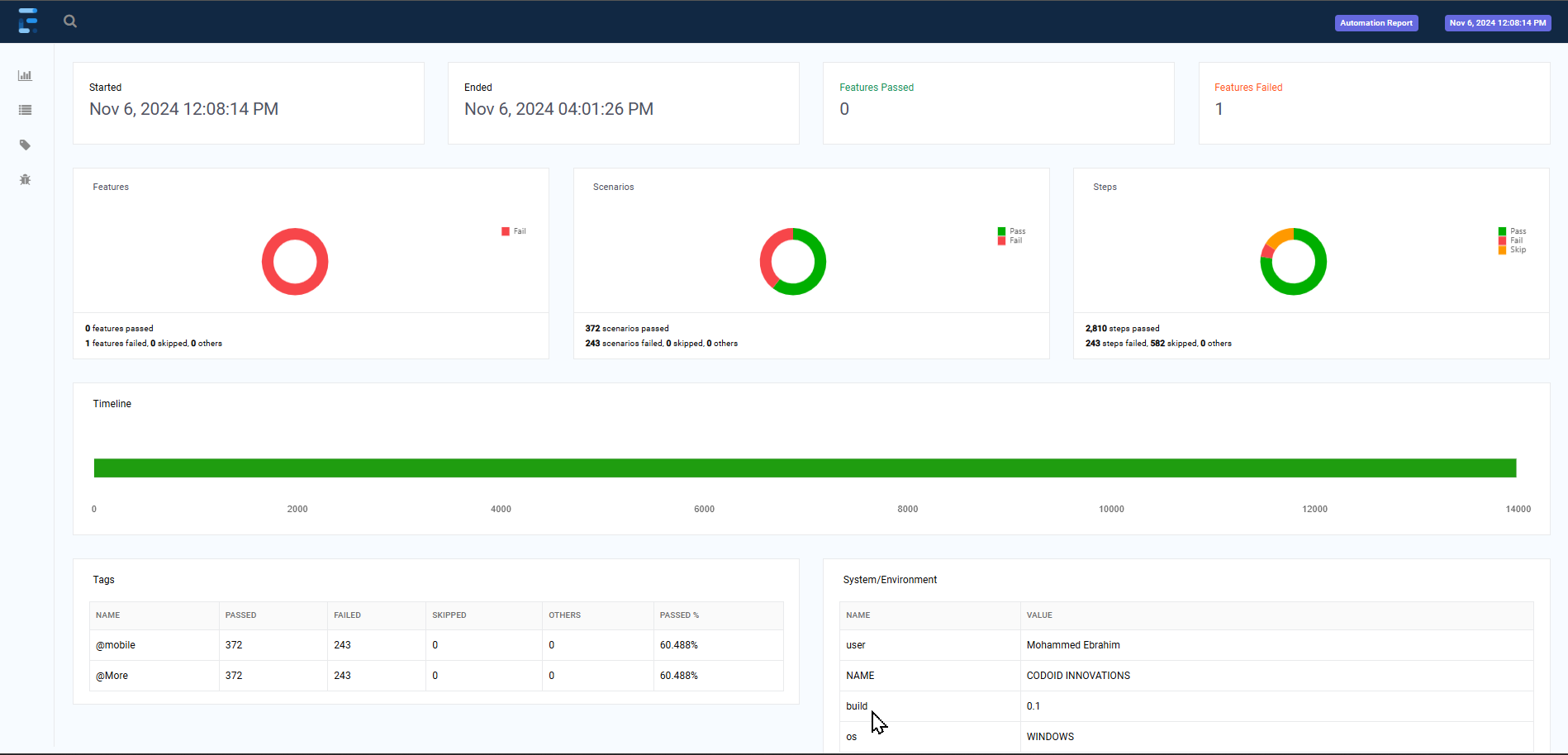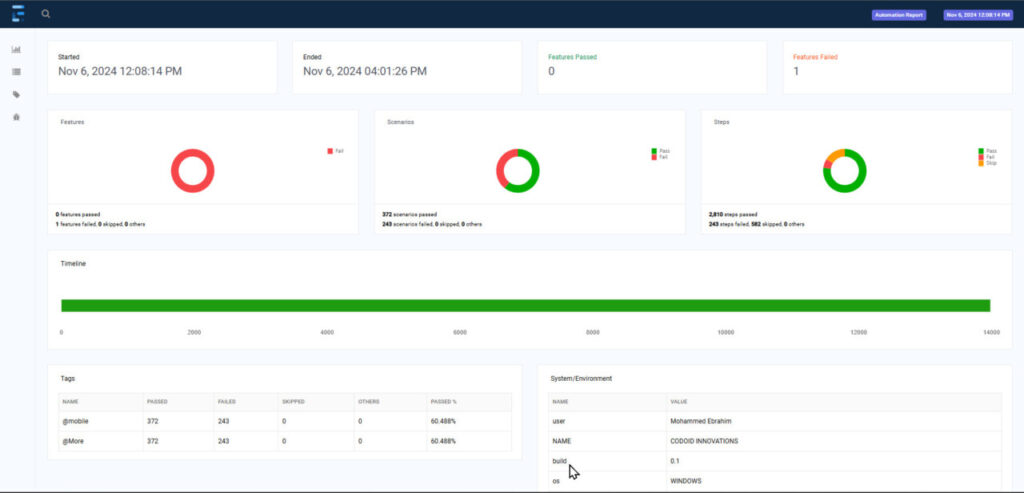In today’s world of finance, mobile applications for test trading software are essential tools for users who need quick access to real-time data and market analysis within a reliable Electronic trading platform, including algorithmic trading capabilities, alongside vast amounts of data for portfolio management tools. As more investors, traders, and researchers rely on these apps for making informed decisions, the demand for a smooth, reliable, and fast experience grows, reflecting a continuous increase in the volume of trades and user expectations. Testing these complex, data-heavy applications and their interfaces for stability and accuracy is a challenging task, especially given frequent updates and high user expectations.
To meet this demand, automated software testing is an ideal solution. This blog will walk you through the key types of automated testing for mobile applications, focusing on functional testing, parallel testing, regression testing, and release support testing. We’ll also discuss how we used Appium, Java, and TestNG to streamline the software testing process, with the help of Extent Reports for detailed and actionable test results, drawing upon our years of experience in the industry.
Why Automate Testing for Trading Software?
Testing a financial app manually is time-consuming and can be prone to human error, especially when dealing with frequent updates. Automation helps in achieving quicker and more consistent test results, making it possible to identify issues early and ensure a smooth user experience across various devices.
In our case, automation allowed us to achieve:
- Faster Testing Cycles: By automating repetitive test cases, we were able to execute tests more quickly, allowing for rapid feedback on app performance.
- Increased Test Coverage: Automation enabled us to test a wide range of scenarios and device types, ensuring comprehensive app functionality.
- Consistent and Reliable Results: Automated tests run the same way every time, eliminating variability and minimizing the risk of missed issues.
- Early Bug Detection: By running automated tests frequently, bugs and issues are caught earlier in the development cycle, reducing the time and cost of fixes.
Tools and Frameworks:
To create a robust automated testing suite, we chose:
- Appium: This open-source tool is widely used for mobile app testing and supports both Android and iOS, making it flexible for testing cross-platform apps. Appium also integrates well with many other tools, allowing for versatile test scenarios.
- Java: As a powerful programming language, Java is widely supported by Appium and TestNG, making it easy to write readable and maintainable test scripts.
- TestNG: This testing framework is ideal for organizing test cases, managing dependencies, and generating reports. It also supports parallel test execution, which greatly reduces testing time.
This combination of tools allowed us to run detailed, reliable tests on our app’s functionality across a variety of devices, ensuring stability and performance under various conditions.
Essential Automated Testing Strategies
Given the complexity of our financial app, we focused on four primary types of automated testing to ensure full coverage and high performance: functional testing, parallel testing, regression testing, and release support testing.
1. Functional Testing
Functional testing ensures that each feature within the app works as intended. Financial applications have many interactive modules, such as market movers, portfolio trackers, and economic calendars, all of which need to perform correctly for users to make informed decisions.
For functional testing:
- We designed test cases for every major feature, such as alerts, notifications, portfolio performance, and economic calendar updates.
- Each test case was crafted to simulate real-world usage—like adding stocks to a watchlist, setting price alerts, or viewing market data updates.
- Our tests validated both individual functions and integrations with other features to ensure smooth navigation and information accuracy.
Functional testing through automation made it easy to rerun these tests after updates, confirming that each feature continued to work seamlessly with others, and gave us peace of mind that core functionality was stable.
2. Parallel Testing
Parallel testing is the practice of running tests on multiple devices simultaneously, ensuring consistent user experience across different screen sizes, operating system versions, and hardware capabilities. This is especially important for financial apps, as users access them on a wide variety of devices, from high-end to budget models.
Using Appium’s parallel testing capability, we could:
- Execute the same tests on multiple devices to check for performance or layout differences.
- Ensure UI elements are scaled correctly across screen sizes and resolutions, so users have a similar experience no matter what device they use.
- Measure the app’s speed and stability on low-spec and high-spec devices, ensuring it worked well even with slower hardware.
Parallel testing allowed us to identify issues that might only occur on certain devices, providing a consistent experience for all users regardless of device type.
3. Regression Testing
Financial apps often require frequent updates to add new features, integrate new data sources, or improve user experience. With every update, there’s a risk of inadvertently disrupting existing functionality, making regression testing essential.
Regression testing confirms that new code does not interfere with previously working features. We used automated tests to:
- Run tests on all core functionalities after each update, ensuring that previously verified features continue to work.
- Include a comprehensive set of test cases for all major modules like watchlists, market alerts, and data feeds.
- Quickly identify and address any issues introduced by new code, reducing the need for lengthy manual testing.
By running automated regression tests with each update, we could confirm that the app retained its stability, functionality, and performance while incorporating new features.
4. Release Support Testing
As part of the release process, release support testing provides a final layer of validation before an app is published or updated in the app store. This testing phase involves a combination of smoke testing and integration testing to confirm that the application is ready for end-users.
In release support testing, we focused on:
- Testing critical functions to ensure there were no blocking issues that could impact user experience.
- Performing sanity checks on newly added or modified features, ensuring they integrate smoothly with the app’s existing modules.
This final step was essential for giving both the development team and stakeholders confidence that the app was ready for public release, free from critical bugs, and aligned with user expectations.
5. API Testing
APIs are the backbone of trading apps, connecting them with data feeds, analytics, and execution services. Testing APIs thoroughly ensures they’re fast, accurate, and secure.
- Data Accuracy Checks: Verifies that APIs return accurate and up-to-date information, especially for real-time data like prices and news.
- Response Time Validation: Tests the speed of APIs to ensure low latency, which is critical in time-sensitive trading environments.
- Security and Error Handling: Ensures APIs are secure and handle errors effectively to protect user data and maintain functionality.
6. Performance Testing
Performance testing is vital to ensure trading software performs reliably, even during high-volume periods like market openings or volatility spikes.
- Load Testing: Verifies that the app can handle a high number of simultaneous users without slowing down.
- Stress Testing: Pushes the app to its limits to identify any breaking points, ensuring stability under extreme conditions.
- Scalability Assessment: Ensures that the app can scale as the user base grows without impacting performance.
Reporting and Results with Extent Reports
A critical component of automated testing is reporting. Extent Reports, a rich and detailed reporting tool, provided us with insights into each test run, allowing us to easily identify areas that needed attention.
With Extent Reports, we were able to:
- View detailed reports for each test—including screenshots of any failures, test logs, and performance metrics.
- Share results with stakeholders, making it easy for them to understand test outcomes, even if they don’t have a technical background.
- Identify trends in test performance over time, allowing us to focus on areas where issues were frequently detected.
The reports were visually rich, actionable, and essential in helping us communicate testing progress and outcomes effectively with the wider team.

Key Benefits of Automated Testing for Financial Apps
Implementing automated testing for our financial app provided numerous advantages:
- Efficiency and Speed: Automated testing significantly reduced the time required for each test cycle, allowing us to perform more tests in less time.
- Expanded Test Coverage: Automated tests allowed us to test a wide range of scenarios and interactions, ensuring a reliable experience across multiple device types.
- Consistency and Accuracy: By removing human error, automation enabled us to run tests consistently and with high accuracy, yielding reliable results.
- Reduced Costs: By identifying bugs earlier in the development cycle, we saved time and resources that would have otherwise been spent on fixing issues post-release.
- Enhanced Stability and Quality: Automation gave us confidence that each release met high standards for stability and performance, enhancing user trust and satisfaction.
Conclusion
Automating mobile app testing is essential in today’s competitive market, especially for data-driven applications that users rely on to make critical decisions. By using Appium, Java, and TestNG, we could ensure that our app delivered a reliable, consistent experience across all devices, meeting the demands of a diverse user base.
Through functional testing, parallel testing, regression testing, and release support testing, automated testing enabled us to meet high standards for quality and performance. Extent Reports enhanced our process by providing comprehensive and understandable test results, making it easier to act on insights and improve the app with each update.
Beyond being a time-saver, automation elevates the quality and reliability of mobile app testing, making it an essential investment for teams developing complex, feature-rich applications. Codoid delivers unparalleled expertise in these testing methodologies explore our case study for an in-depth view of our approach and impact.
The post Comprehensive Strategies to Test Trading Software appeared first on Codoid.
Source: Read More

